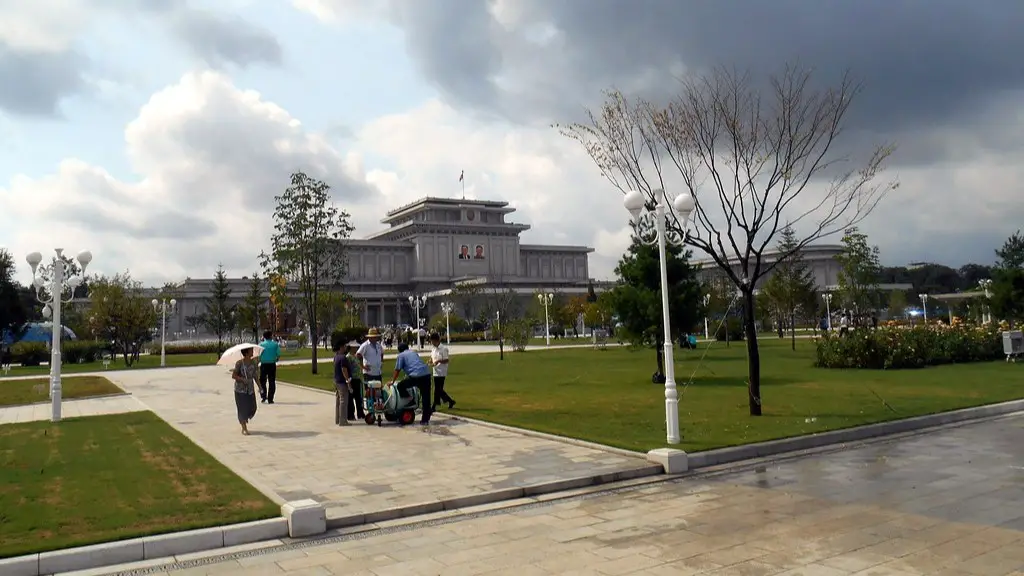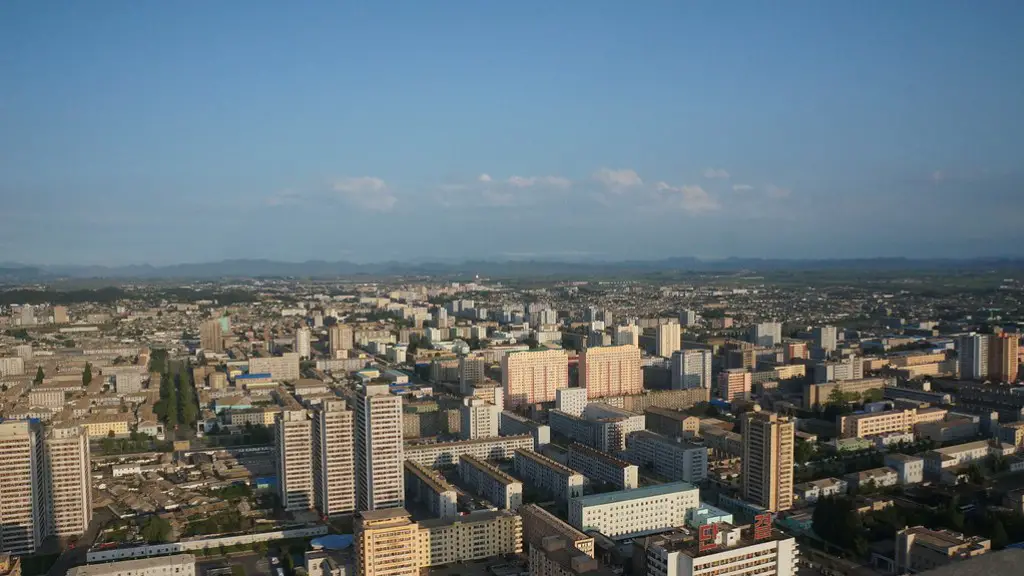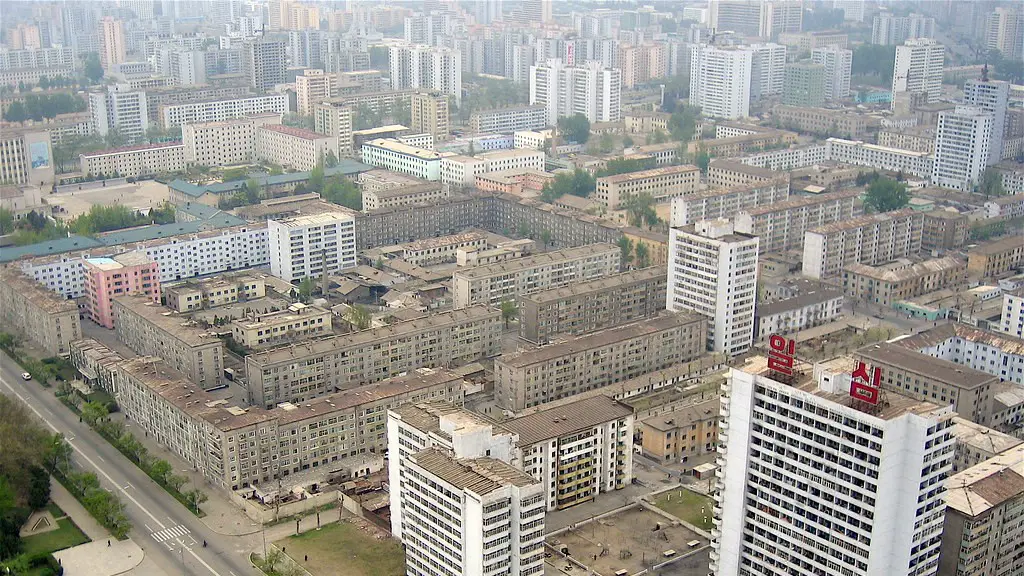North Korea’s nuclear program is one of the most debated topics in the world today, with many uncertain and fearful of the country’s capabilities. Since its first successful test of a nuclear weapon in 2006, Pyongyang has made considerable progress in developing the weapons technology necessary for a nuclear arsenal. But how many nuclear bombs does North Korea have?
Assessing the strength of North Korea’s nuclear program can be a difficult task, as the reclusive nation has been successful in keeping their weapons development secret. North Korea is estimated to have a few dozen nuclear weapons.
However, the exact number of North Korean nuclear weapons is impossible to accurately determine. According to the International Institute for Strategic Studies (IISS), North Korea is believed to have between 16 and 61 nuclear weapons. The estimates suggest that the nation could possess around 40 nuclear weapons.
Experts believe that North Korea is still working to increase its nuclear arsenal, as the nation’s policy is focused on the advancement and modernization of their nuclear program. North Korea has developed weapons such as thermonuclear and hydrogen bombs and has been researching miniaturization, believed to be a means of making warheads small enough to fit onto ballistic missiles.
The development of nuclear weapons by North Korea has been strongly opposed by many of the world’s leading countries. After the nation’s first nuclear test in 2006, United Nations Security Council passed multiple sanctions to try and limit the country’s nuclear capability. However, despite the sanctions, North Korea’s nuclear program has progressed, with the nation conducting numerous tests and launches.
North Korea’s nuclear posture has been further complicated by the nation’s recent claim that it has the ability to arm its missiles with nuclear warheads, though there is no concrete proof of such capability. There is also disagreement among analysts and experts as to whether the missiles North Korea test fired in 2017 were intercontinental ballistic missiles (ICBMs) capable of reaching the mainland United States.
Despite the uncertainties, it is clear that North Korea has made significant progress in its nuclear capability. The nation’s strength of potential nuclear weapons has been one of the key motivators for the diplomatic talks recently held by the United States and North Korea.
Economic Implications
North Korea’s nuclear capabilities have had a profound effect on the nation’s economic situation. The country’s international status, as well as any further attempts to develop the nation’s nuclear technology, has been hindered by the United Nations Security Council’s sanctions. These sanctions, imposed since 2006, have severely crippled North Korea’s economy and left the nation with few options to acquire foreign investments and export goods.
The economic implications of North Korea’s nuclear program have also had a major impact on the diplomatic relations between North and South Korea, as well as the international community. South Korea is the nation that is most directly affected by the North Korean nuclear program and the sanctions imposed by the United Nations. South Korea has expressed concern over the issue, fearing the risk of a nuclear conflict with its neighbor.
The economic implications of North Korea’s nuclear program have sparked numerous debates about the potential for economic sanctions to be effective in curbing the nation’s nuclear ambitions. Many observers have questioned whether the harsh economic sanctions imposed by the United Nations have been effective in achieving their desired effects. Some believe that the sanctions have been ineffective due to North Korea’s ability to evade the U.N.’s restrictions by clandestinely trading goods with other countries.
Overall, the economic implications of North Korea’s nuclear program have been substantial and have had a major impact on the country’s ability to develop its economy. The nation’s nuclear program has presented a huge challenge to the international community, which has sought to contain North Korea’s nuclear ambitions through economic sanctions.
International Response
The international community has responded to North Korea’s nuclear ambitions with a variety of measures ranging from economic sanctions to diplomatic talks. Since its first nuclear test in 2006, the United Nations Security Council has imposed multiple rounds of harsh economic sanctions in response to North Korea’s pursuit of a nuclear arsenal.
The international community has also been leveraging the help of China, North Korea’s closest ally and trading partner, in attempting to mitigate the tense nuclear situation. China has taken steps to limit North Korea’s access to essential goods and services needed to maintain its nuclear program.
The United States has also been active in attempting to resolve North Korea’s nuclear situation. After assuming the presidency in 2017, President Donald Trump has pursued a policy of maximum pressure against North Korea and has sought to leverage China’s influence over North Korea. President Trump has also held numerous diplomatic talks with North Korean leader Kim Jong-un, and in 2018 the two leaders signed a statement indicating a commitment to the denuclearisation of the Korean peninsula.
The international community’s response to North Korea’s nuclear ambitions has been a topic of debate among experts, some arguing that it has been too soft and others asserting that it has been overly aggressive. Overall, it appears the international community has attempted to take a measured approach to the situation and has sought a diplomatic solution to the conflict.
Impact on South Korea
The impact of North Korea’s nuclear ambitions on South Korea has been considerable. The nation has been significantly affected by the stringent economic sanctions imposed by the United Nations, as well as the risk of North Korea’s weapons falling into South Korean hands. South Korea has also been apprehensive of the potential for a nuclear conflict with its northern neighbor.
South Korea has taken several steps in response to North Korea’s nuclear ambitions. In addition to the support provided by the United States, South Korea has actively sought to reduce tensions between the two nations by engaging in numerous diplomatic talks. South Korea has also sought to increase cooperation with other countries in order to pressure North Korea to halt its nuclear program.
The long-term consequences of North Korea’s nuclear ambitions on South Korea remain uncertain. Some experts believe that the escalating tensions between the two nations could eventually lead to a full-blown conflict. Others argue that the resumption of diplomatic talks between the two countries alongside enhanced economic cooperation could eventually lead to a peaceful solution.
Outlook
The future of North Korea’s nuclear ambitions remains uncertain. It is increasingly unlikely for North Korea to completely abandon its nuclear program in the near future, as the nation has invested vast resources into perfecting its weapons technology. Furthermore, despite the diplomatic talks between the two nations, North Korea has not been willing to move toward complete denuclearisation.
At the same time, progress has been made in the diplomatic talks, with both the United States and North Korea making significant concessions. The two nations have also agreed to take additional steps towards denuclearisation and President Trump has expressed optimism that a full agreement could be reached.
Overall, it appears that North Korea’s nuclear ambitions are here to stay, at least in the short term. The future of North Korea’s nuclear program will depend largely on the effectiveness of the diplomatic talks between the two nations and the international community’s response.
Military Implications
The threat of North Korea’s nuclear capabilities has had a major impact on the military landscape of the Korean peninsula. North Korea’s nuclear weapons have been a major factor in altered military postures adopted by the United States, South Korea, and Japan. The nations have bolstered their defenses in order to protect against the potential for a nuclear attack from Pyongyang.
The military implications of North Korea’s nuclear weapons have also been a key component in the nation’s diplomatic talks with the United States. North Korea has long sought the removal of US troops stationed in South Korea in exchange for the nation’s denuclearisation. The US, however, has refused to make such a concession, as the US presence in South Korea is seen as a deterrent against a North Korean nuclear attack.
The military implications of North Korea’s nuclear weapons also extend to the security of other nations. North Korea’s weapons tests have heightened concerns in nations such as Japan and South Korea, both of which fear potential threats from their northern neighbor. This has prompted both nations to take extra precautions and to strengthen their military defenses.
It is clear that the military implications of North Korea’s nuclear program have been far-reaching and have had a major impact on regional security. North Korea’s nuclear weapons have become a major factor in determining the security strategies of many nations and have played an important role in international diplomacy.
Conclusion
North Korea’s nuclear ambitions are one of the most significant issues facing the world today. Although the exact number of nuclear weapons Pyongyang possesses is uncertain, it is clear that the nation has made significant progress in developing the capability to produce nuclear weapons. The international community has responded by imposing economic sanctions and engaging in diplomatic talks, though the effectiveness of such measures remains uncertain.
The implications of North Korea’s nuclear program have been profound, with the nation’s economic situation as well as the military postures of various nations being heavily impacted by the situation. The long-term effects of North Korea’s nuclear program remain to be seen, though the nation’s weapons are certain to remain a major factor in international relations for many years to come.





